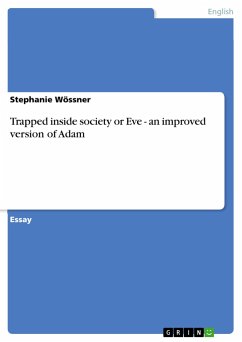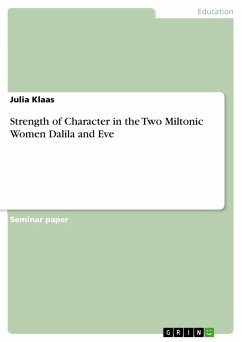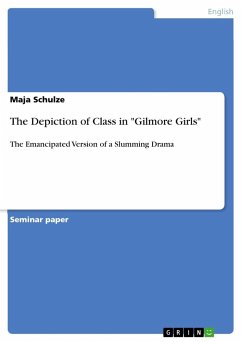Essay from the year 1999 in the subject American Studies - Literature, grade: 1,5 (A), University of Tubingen (American Studies), course: PS I Literatur - Introduction to Literature Studies with the example of the american drama, language: English, abstract: This term paper will show to what a great extent society is influenced by men. I suggest that in Marsha Norman´s play "Getting Out" her protagonist Arlene would never have faced so many problems in life, let alone would have become criminal, if men did not possess such a great power over society. Men being in power throughout the world was certainly the worst thing that could ever have happened in human history, Arlene being a representative of all the women living and having lived on earth, even if a very extreme one. But in favor of men, I claim that men are not really guilty either because society has become autonomous and cannot be controlled anymore.The basis for my thesis is Gretchen Cline´s essay entitled "The Impossibility of Getting Out - The Psychopolitics of the family in Marsha Norman´s Getting Out" which contains feminist, psychoanalytic and existential frameworks to show Arlene Holsclaw´s oppression within a family that parallels the institutions that bind her. Cline herself uses Walter Davis´ theory of the "crypt" to analyze Arlene´s familial and the subsequent social scapegoating in order to show how women are shaped by a society in which the most moral institutions, such as family and religion, justify violation and oppression.
Hinweis: Dieser Artikel kann nur an eine deutsche Lieferadresse ausgeliefert werden.
Hinweis: Dieser Artikel kann nur an eine deutsche Lieferadresse ausgeliefert werden.








